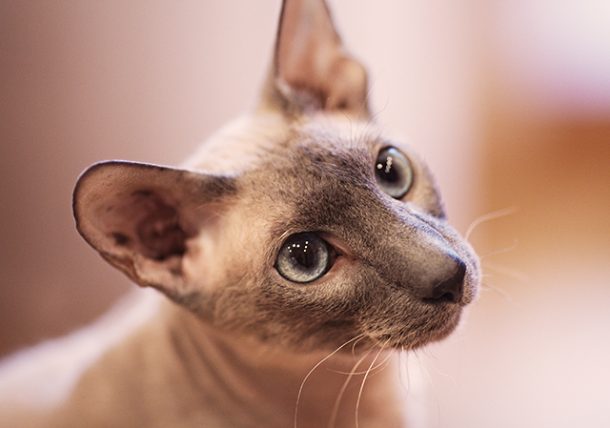Feline Immunodeficiency Virus

What is Feline Immunodeficiency Virus?
Feline Immunodeficiency Virus (FIV), also known as “Feline AIDS,” is a virus found worldwide that affects cats. It has been diagnosed in domestic and undomesticated cats, including wildcats, such as the puma, lion, leopard and Pallas’s cat.
Transmission
The free-roaming male cat and sick adult cats are most likely to become infected. Transmission occurs when two cats come into direct contact with each other, primarily through saliva by a bite wound, the mouth, the vagina or semen of an infected cat. Transmission from mother to kittens occurs as well. Indirect transmission is when a negative cat touches an inanimate object (fomite) that has been contaminated with the active virus.
Clinical Signs
Initial clinical signs include fever, depression and decreased appetite. Because this virus is responsible for the breakdown of the immune system, clinical signs may not be directly related to the virus itself. Common clinical signs in the chronically infected cat include gingivostomatitis (inflammation of the oral cavity), enlarged lymph nodes, weight loss and secondary infections (viral, bacterial, fungal or others).
Diagnosis and Treatment
Blood tests, which can be performed in the clinic or at professional laboratories, are available to diagnose FIV. Treatment is very limited for the virus itself. Most treatment is aimed at other diseases and infections common to cats with FIV. Owners need to be particularly aware of any abnormal behavior or signs that might indicate other diseases. The veterinary care team should provide prompt and aggressive treatment for other infections.
Preventative Measures
Below are a few measures pet owners can take to prevent the transmission of FIV:
- Move outdoor cats indoors, or separate non-infected cats from the cat with FIV.
- Have your cat spayed/neutered to help decrease the urge for your cat to roam and spread the virus.
- Keep your cat indoors, preventing it from roaming and contracting secondary infections.
Unfortunately, no preventive method is 100-percent effective, and each situation is different when it comes to preventing the spread of FIV. Please consult your local veterinarian for advice for your specific situation.
Conclusion
Many cats with FIV live a long and relatively normal life with a dedicated owner and quality care from their veterinary care team. Making changes to the cat’s lifestyle, such as keeping it indoors and spaying and/or neutering, will help it live a comfortable life. If you are concerned that your cat is at risk or may have contracted FIV, contact your veterinarian immediately.
Paula Plummer, LVT, VTS (ECC, SAIM), is a licensed veterinary technician who graduated from Murray State College in Tishomingo, Oklahoma. Ms. Plummer works in the Feline Internal Medicine Department at the Texas A&M University Veterinary Teaching Hospital in College Station, Texas.

